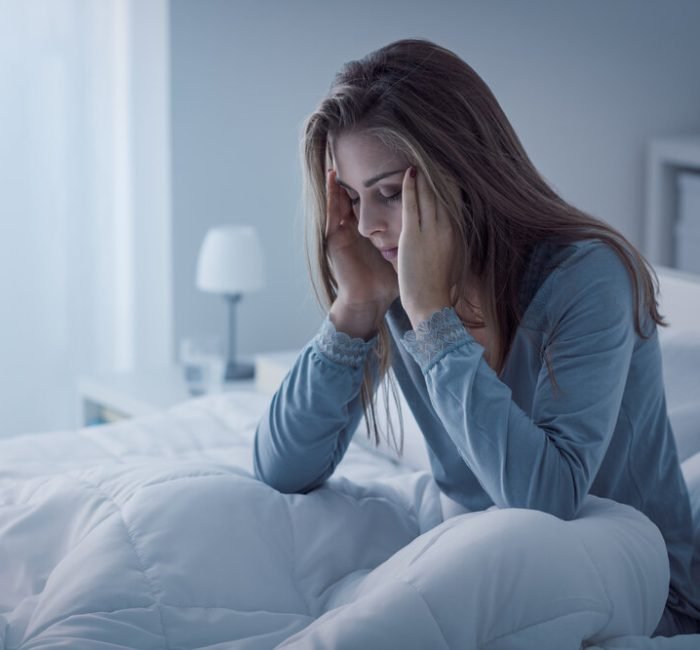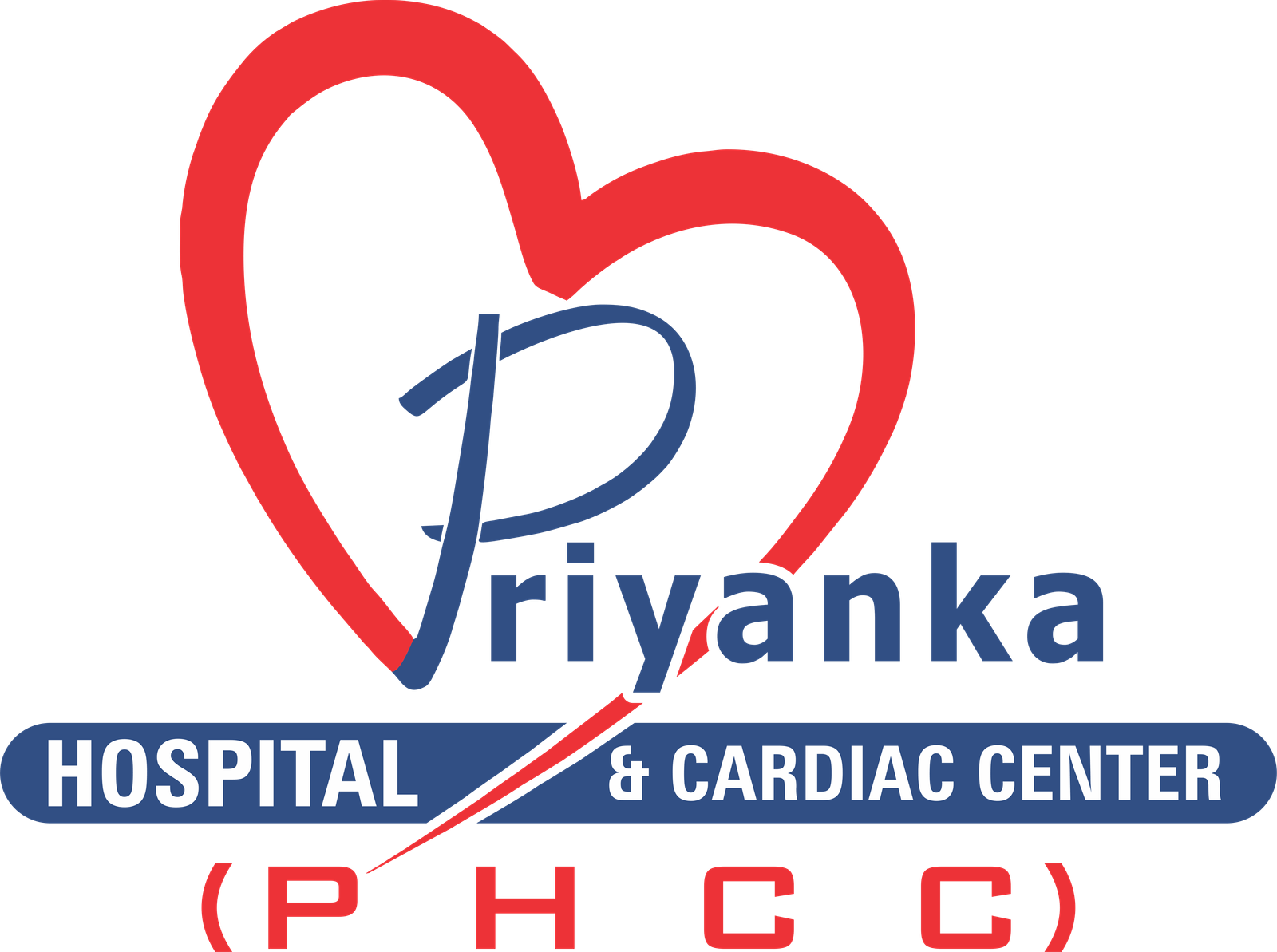Best Sleep Disorders Hospital in Jaipur
Welcome to Priyanka Hospital, We have a dedicated department in Priyanka Hospital for diagnosing and treating different types of sleep disorders in order to provide sleep that is restorative to the body and mind. We provide a full spectrum of services for the patients with sleep disorders since our hospital is the top-rated sleep disorders hospital in Jaipur.
Priyanka Hospital has a professional and highly skilled team of sleep specialists who have huge experience in the diagnosis and treatment of all types of sleep disorders such as insomnia, sleep apnea, narcolepsy, restless legs syndrome, and parasomnias. The specialists in our team are committed to the enhancement of patient’s sleep quality and their general health by developing an individualized approach and effective management plan.
Our team of sleep specialists develops personalized treatment plans tailored to each patient’s specific sleep disorder, medical history, and lifestyle factors. Treatment options may include lifestyle modifications, behavioral therapy, CPAP therapy, oral appliances, medications, and surgical interventions, depending on the underlying cause of the sleep disorder.

Why Choose Priyanka Hospital For Sleep Disorders in Jaipur
As the best sleep disorder hospital in Jaipur, Priyanka Hospital offers comprehensive sleep studies, including polysomnography (PSG) and home sleep apnea testing (HSAT), to accurately diagnose sleep disorders and evaluate patients’ sleep patterns and breathing during sleep. We utilize advanced diagnostic tools and technology to ensure precise diagnosis and effective treatment planning. When it comes to sleep disorders in Jaipur, Priyanka Hospital is the most recommended hospital to many patients especially those who are in need of competent diagnostic services, quality treatment and most importantly quality care. We have professional sleep specialists, total sleep solutions, and modern sleep disorder hospitals that make us the best in city.
Types of Sleep Disorders
There are several types of sleep disorders that can significantly impact an individual’s ability to get restful and rejuvenating sleep. Some common types of sleep disorders include:
1. Insomnia: Insomnia is a sleep disorder which manifests itself in the difficulty of falling asleep, the difficulty of staying asleep or waking up in the middle of the night and being unable to fall back asleep. It can be either a sudden or long-lasting problem and may be influenced by stress, anxiety, depression, disease, certain prescribed medications, or other aspects of daily life.
2. Sleep apnea: Sleep apnea is a sleep disorder characterized by pauses in breathing or shallow breathing during sleep. The two main types of sleep apnea are obstructive sleep apnea (OSA), caused by a blockage in the airway, and central sleep apnea (CSA), caused by a problem with the brain’s signals to the muscles that control breathing.
3. Narcolepsy: Narcolepsy is a chronic neurological disorder characterized by excessive daytime sleepiness, sudden and uncontrollable episodes of falling asleep (narcoleptic episodes), sleep paralysis, hallucinations, and disrupted nighttime sleep. It is caused by a deficiency of hypocretin, a neurotransmitter that regulates wakefulness and REM sleep.
4. Restless legs syndrome (RLS): Restless legs syndrome is a neurological disorder characterized by uncomfortable sensations in the legs, often described as crawling, tingling, or itching sensations, accompanied by an irresistible urge to move the legs. Symptoms typically worsen at night and can interfere with falling asleep or staying asleep.
5. Periodic limb movement disorder (PLMD): Periodic limb movement disorder is a sleep disorder characterized by repetitive movements of the legs (or, less commonly, the arms) during sleep, often involving flexing or extending the limbs. These movements can disrupt sleep and lead to daytime fatigue and sleepiness.
6. Circadian rhythm sleep-wake disorders: Circadian rhythm sleep-wake disorders involve disruptions in the body’s internal clock, leading to difficulties with sleep timing and quality. Examples include delayed sleep phase disorder (DSPD), advanced sleep phase disorder (ASPD), irregular sleep-wake rhythm disorder, and shift work sleep disorder.
7. Parasomnias: Sleep disorders are classified as parasomnias if they take place during sleep or at the time of transition between the stages of sleep. Some of these include somnambulism, somniloquy, night terrors, REM sleep behavior disorder, and sleep related eating disorder.
8. Sleep-related movement disorders: Sleep related movement disorder is characterized by movements that occur at night, which affects the quality of sleep and thus causes daytime sleepiness. This may involve bruxism, which is the teeth grinding, rhythmic movement disorder, and sleep related leg cramps.
Here are some of these common types of sleep disorders and some of the characteristics, causes, and management of each one. In case you or anyone close to you feel that you may be having a sleep disorder it is wise to seek medical advice from a doctor.
Symptoms and causes of sleep disorder
Sleep disorders can manifest with a variety of symptoms and have diverse underlying causes. Here are some common symptoms and causes associated with sleep disorders:
Symptoms of sleep disorders:
- Difficulty falling asleep (insomnia)
- Difficulty staying asleep (middle-of-the-night awakenings)
- Waking up too early and being unable to go back to sleep
- Excessive daytime sleepiness or fatigue
- Frequent or loud snoring
- Pauses in breathing during sleep (sleep apnea)
- Gasping or choking sensations during sleep (sleep apnea)
- Restless legs or uncomfortable sensations in the legs
- Jerking or kicking movements during sleep (periodic limb movements)
- Nightmares or vivid dreams
- Sleepwalking or other unusual behaviors during sleep
- Waking up feeling unrefreshed or unrested
Causes of sleep disorders:
Stress and anxiety: Psychological factors such as stress, anxiety, depression, or traumatic experiences can contribute to insomnia, sleep disturbances, and other sleep disorders.
Poor sleep hygiene: Unhealthy sleep habits and lifestyle factors, such as irregular sleep schedules, excessive caffeine or alcohol consumption, and using electronic devices before bedtime, can disrupt sleep and contribute to sleep disorders.
Medical conditions: Underlying medical conditions such as obstructive sleep apnea, restless legs syndrome, periodic limb movement disorder, narcolepsy, insomnia disorder, circadian rhythm sleep-wake disorders, and certain neurological or psychiatric disorders can cause sleep disturbances.
Medications: Certain medications, such as antidepressants, antipsychotics, stimulants, beta-blockers, decongestants, corticosteroids, and medications that affect the central nervous system, can interfere with sleep patterns and contribute to sleep disorders.
Substance abuse: Substance abuse, including alcohol, nicotine, caffeine, and recreational drugs, can disrupt sleep-wake cycles, interfere with sleep quality, and contribute to sleep disorders.
Hormonal changes: Hormonal changes associated with pregnancy, menopause, menstruation, thyroid disorders, and other endocrine disorders can affect sleep patterns and contribute to sleep disturbances.
Aging: As individuals age, changes in sleep architecture, hormone levels, and health conditions can lead to sleep disturbances, including insomnia, sleep apnea, and restless legs syndrome.
Environmental factors: Environmental factors such as noise, light exposure, temperature fluctuations, and disruptions to the sleep environment (e.g., shift work, jet lag) can disrupt sleep and contribute to sleep disorders.
It’s important to note that sleep disorders can have complex and multifactorial causes, and individual experiences may vary. If you suspect that you or someone you know may have a sleep disorder, it’s essential to consult with a healthcare professional for proper evaluation, diagnosis, and treatment.
Explore Our Main Service
FAQs on Sleep Disorders
What are Sleep Disorders, and what are the common types?
Sleep Disorders are conditions that disrupt normal sleep patterns and interfere with the ability to get restorative sleep. Common types of sleep disorders include insomnia (difficulty falling asleep or staying asleep), sleep apnea (pauses in breathing during sleep), restless legs syndrome (uncomfortable sensations in the legs that disrupt sleep), narcolepsy (excessive daytime sleepiness and sudden sleep attacks), parasomnias (unusual behaviors or movements during sleep, such as sleepwalking or night terrors), and circadian rhythm disorders (such as shift work sleep disorder or jet lag).
What are the signs and symptoms of Sleep Disorders?
Signs and symptoms of Sleep Disorders vary depending on the specific disorder but may include difficulty falling asleep or staying asleep, waking up frequently during the night, waking up too early and being unable to fall back asleep, daytime sleepiness or fatigue, irritability, difficulty concentrating or remembering, mood disturbances, morning headaches, gasping or choking sensations during sleep (indicative of sleep apnea), leg discomfort or movements that disrupt sleep (indicative of restless legs syndrome), and unusual behaviors during sleep (such as sleepwalking or talking).
What causes Sleep Disorders?
Sleep Disorders can have various causes, including lifestyle factors, medical conditions, medications, psychiatric disorders, and environmental factors. Common contributors to Sleep Disorders include poor sleep habits (such as irregular sleep schedules or excessive screen time before bed), stress and anxiety, depression, chronic pain conditions, respiratory disorders (such as asthma or COPD), obesity, hormonal imbalances, neurological disorders, certain medications (such as stimulants or antidepressants), alcohol or substance use, and sleep-disrupting factors in the sleep environment (such as noise, light, or temperature).
How are Sleep Disorders diagnosed?
Sleep Disorders are typically diagnosed through a combination of clinical evaluation, sleep history assessment, and diagnostic tests such as polysomnography (overnight sleep study), multiple sleep latency test (MSLT), or actigraphy (wearable device to monitor sleep-wake patterns). Healthcare providers may also use questionnaires or sleep diaries to gather information about sleep habits, daytime functioning, and symptoms.
What are the treatment options for Sleep Disorders?
Treatment for Sleep Disorders depends on the specific type and underlying cause of the disorder. Options may include lifestyle modifications (such as improving sleep hygiene, maintaining a regular sleep schedule, and avoiding caffeine or alcohol close to bedtime), cognitive-behavioral therapy for insomnia (CBT-I), medications (such as sleep aids, antidepressants, or medications for sleep apnea), continuous positive airway pressure (CPAP) therapy for sleep apnea, oral appliances for snoring or sleep apnea, and behavioral interventions for other sleep disorders. It’s essential to work with a healthcare provider to determine the most appropriate treatment approach based on individual needs and preferences.
Still Have a Question?
If you cannot find answers to your queries, please fill out the enquiry form or call the number below. We will contact you shortly
